‘’Without pollinators it will be quite difficult for humanity to survive’’
In 'Spotlight' we speak with inspiring entrepreneurs. This time: Tom van de Beek. With his foundation the Pollinators he is on a mission to protect pollinating insects that are under severe threat.
Insects are indispensable for healthy ecosystems. Long-term research shows time and again that the number of insects is constantly decreasing, currently a quarter of the insect species on the European continent are threatened with extinction. ‘’Pollinators are at the base of our food chain. Without them, it will be quite difficult for humanity to survive,’’ says Tom van de Beek, who founded the Pollinators in 2016.
Tom, a social entrepreneur and, as he likes to call it, an Ecopreneur, has founded several projects and organisations with a focus on accelerating the transition towards a sustainable society. That sense of social and ecological entrepreneurship has always been there. ‘’I only went to study Business Communication on the advice of my parents because that would provide job security. I was raised in the 1980s when job scarcity hung over our heads like a dark cloud. But I’ve been involved in animal rights since I was sixteen and I was concerned about the deforestation of the Amazon.’’
He was also very involved with music and art, and the combination of ‘’organising a concert and paying attention to 'charity' was ideal for me: combining the fun and the useful.’’ He never knew that it would be something you could earn a living with. ‘’It was just something that was important to me, besides getting a job. But when I did an internship at KPMG (the audit and advisory firm) I quickly drew my conclusions - especially when my direct colleague said to me ’what we do here is that we make the rich even richer’. Well, that wasn't what I wanted to waste my time on. Since then I've basically only done what I liked, what I was good at and what was important to me.’’
The importance of pollinators
It was around 2010 when Tom realised the severity of the issue with pollinators. He was screening lots of nature documentaries in his capacity as co-founder of the Dutch Environmental Film Festival. A movie about the dying of bees and the consequences of such an event spurred him to take action.‘’This was a new phenomenon for me, I never heard of it. I decided to organise a one-time event in honour of the bee. However, this proved so popular that it quickly became a recurring national project with courses in urban beekeeping in the major cities and awareness campaigns about why bees are so important.’’
In the following years, increased attention for the bee led to a proliferation of all kinds of small and larger initiatives that 'wanted to do something for the bee'. ‘’That was a great development, but there wasn't that much synergy between all the different clubs. The idea for The Pollinators was born from the idea of turning that wild growth of organisations into a healthy ecosystem - in which connection and cross-pollination are central.’’
They made sure to focus on all the pollinators and not just bees, as they all have important roles. ‘’They thrive with a healthy and varied food supply and therefore with a high degree of biodiversity. To protect them, we call on as many individuals, initiatives and organisations as possible to figuratively become pollinators themselves - spread the word and plant the seeds - in order to literally help pollinators survive and thrive.’’ The need for this is apparent, as the extinction of pollinators would mean a severe degradation of our ecosystems and in turn our food supply, leading to the disappearance of certain fruit and vegetables and wild plants.
To instil this sense of urgency to the general public can be challenging. ‘’Abstract concepts like biodiversity are hard for people to grasp. I’ve noticed it works well to make big themes small and tangible. We bring it back to something concrete with immediate results, with our Feed the Bee campaign.’’ They distribute hundreds of thousands of bags of organic flower seed. ‘’In the run-up to National Sowing Day, everyone can pick up a bag of flower seed for free (which means a low-threshold) in their area. The process of planting, watering and caring for your own seeds, seeing the flowers emerge, the eventual blooming and to top it all off, that fat bumblebee that collects nectar and pollen from your flower, consciously experiencing that process does something to you. Wonder arises, it's about appreciating the small things and seeing that everything is connected with everything. That means also realising that our actions have an effect on other living beings on earth.’’
Planting seeds
In measuring the extent of impact, one doesn’t always need to look to the quantitative side of things. ‘’Can you express what we do well in numbers and what does that say? Or could it also be that the effect is much more in a change of world view and in figuratively planting seeds?’’ Just looking at the numbers ‘’the impact is that we now have a community of more than 25,000 enthusiastic pollinators, that we work with more than 100 organisations, that together with our now six strategic partners we reach more people every year with our campaigns,’’ Tom says. ‘’For example, more than a million square metres of (indigenous) flower seed is now sown annually in gardens and on balconies during our Feed the Bee spring campaigns.’’
They continue to launch campaigns, spread awareness and sow these figurative seeds. For Treevember they organise tree planting events for example. For the future, they are looking for available (agricultural) land. ‘’Preferably with buildings on it, where we can bring all our activities together. We call it Pollinatorland and we see it as a ‘pollinator amusement park,’ a lush place where you are only too happy to stay as a pollinating insect, but also as a human being.’’ It should be a place where you learn in a playful way about ecosystems, pollinators, flower seeds, food forests and regeneration.‘’ The Pollinators also slowly but surely expanding their activities internationally. ‘’We would prefer to form a worldwide movement of Pollinators and a network that strengthens each other and together makes a global fist for pollinators and biodiversity.’’
Social entrepreneurship essential
Entrepreneurship and pursuing sustainable, social goals can go together perfectly according to Tom, and is urgently needed now. ‘’Social well-being and nature restoration are vital matters and, in my opinion, companies should not have a right to exist if they do not directly contribute to this.’’ However, he thinks that current company structures are problematic in reaching such goals. ‘’As long as shareholder value is leading, it proves extremely difficult to achieve substantial change. That is why I also find it interesting to explore alternatives to ownership.’’
A model where value increases through exploitation and profit maximisation are no longer central would be ideal, says Tom. ‘’A model such as 'steward ownership' should be adopted by many companies. I also think that the government - which is so often reviled - should also play an important role, for example by drawing up additional rules for companies. Taxes for large companies and multinationals must be raised, so that a level playing field can be created and local entrepreneurs are not ultimately outcompeted by the juggernauts. Just as bees are the cement for our food system, small local entrepreneurs are the cement for healthy communities.’’
Sense of wonder
The question of the lost connection with nature, is one to philosophise over. ‘’Our minds have allowed us to develop the most advanced civilizations and technologies. But psychologically, our thinking ability also gets in the way. Our thoughts and words create a world in our head, as it were. We create a certain image of the world and the truth and act on it. That has spawned ideologies, religions, sects, systems, some of which clearly positioned man above nature. All other life is in the service of man. This opens the door to capitalism and exploitation, ultimately leading to enormous problems such as climate disruption, large-scale deforestation and the accelerated disappearance of many species.’’
The magnitude of those problems is so big, that the understanding and tackling of it can be daunting. ‘’It feels a bit like a rope that is so tangled that you become more and more furious because of your frustration and in the end, you can't get anything done and just throw the ball of rope away. Unfortunately, that is not possible with the earth.’’ Tom's belief is that there are some fundamental things we humans first have to understand. ‘’Who are we as human beings and how do we relate to all other life? We will have to realise that we are dependent on other life.’’
‘’The realisation of how fantastically beautiful, complex and incomprehensible life really is, as illustrated by the aforementioned process from seed to bumblebee, can help bring back this feeling of amazement.’’ Tom says. ‘’Then you don't even have to search for answers to the big questions of life. Experiencing the connection through the amazement. Because you don't want to destroy what you feel connected to.’’ This feeling can start small and slowly, ‘’with yourself, with your family, with the people in your neighbourhood, with your school, at work and so on. In this way, slowly but surely, an increasing movement is created. Positive and infectious.’’
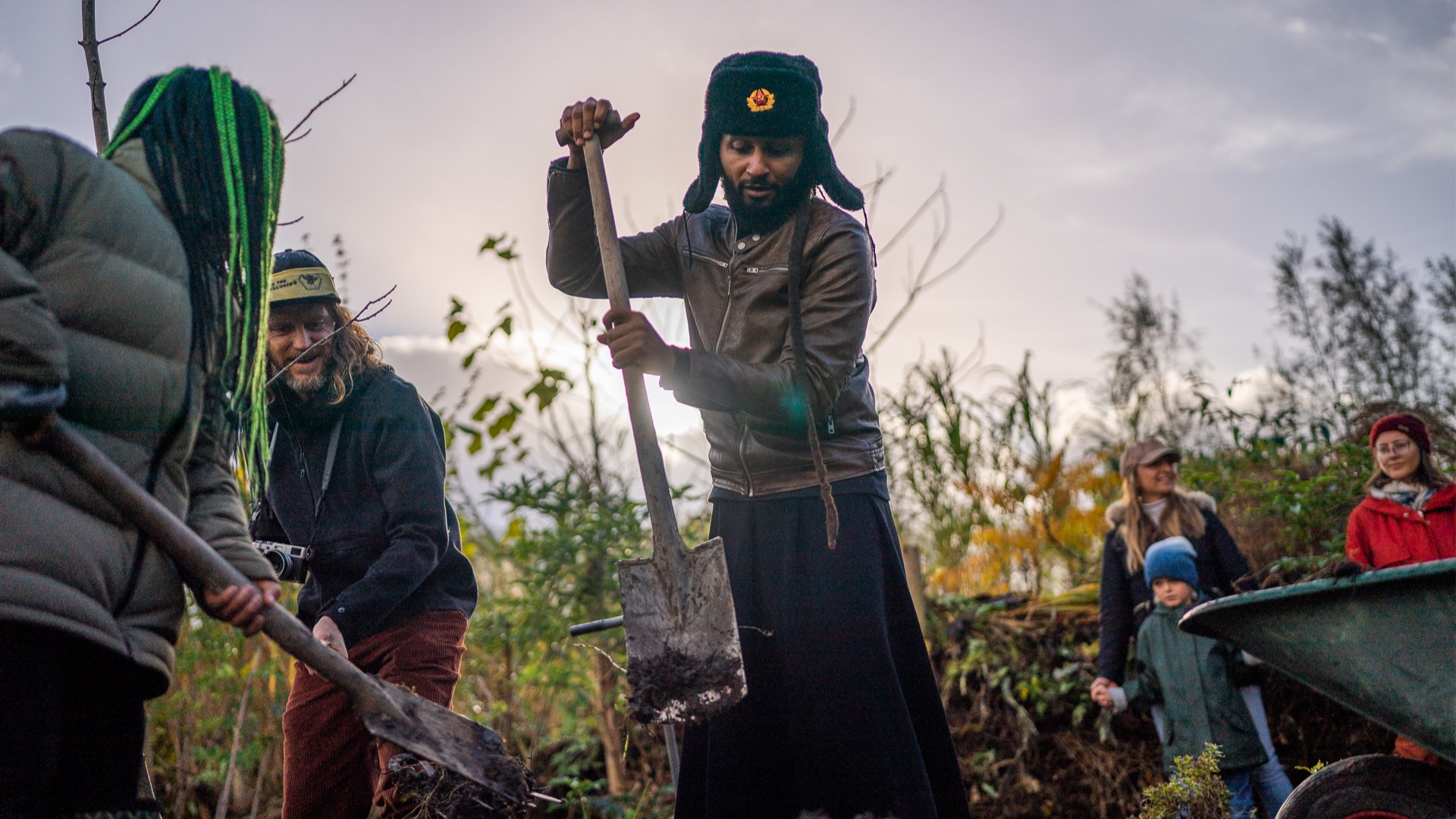
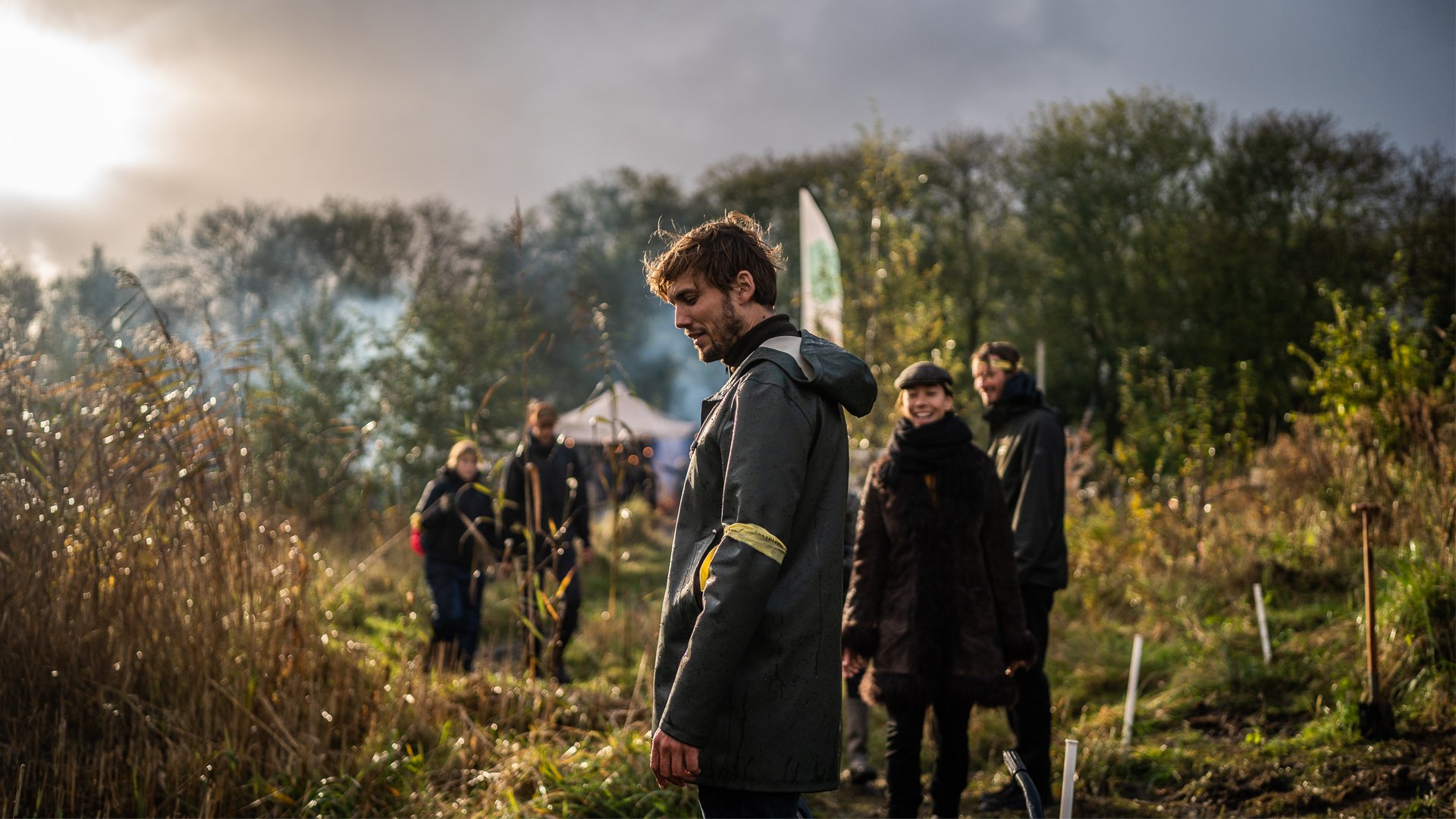
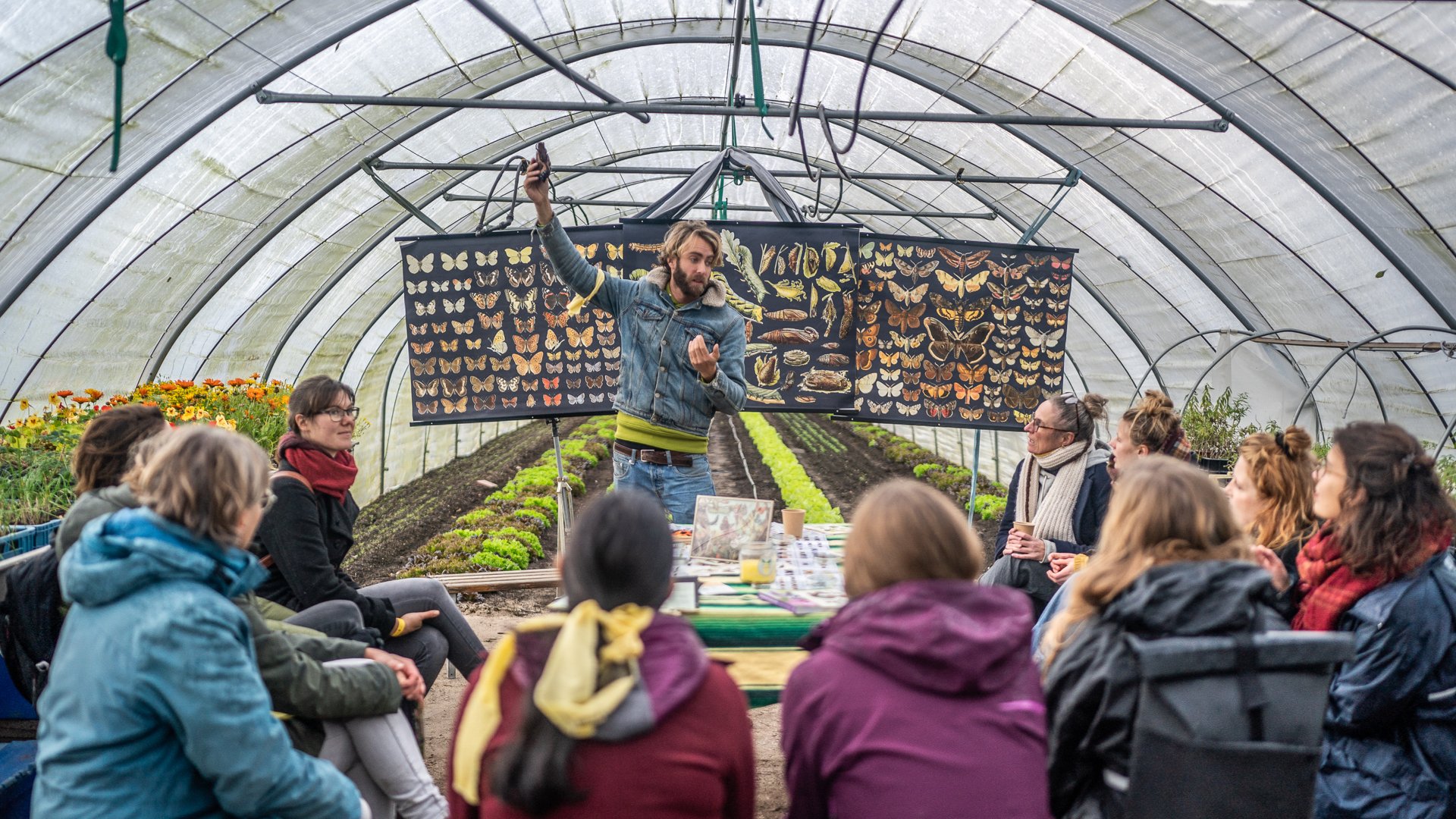
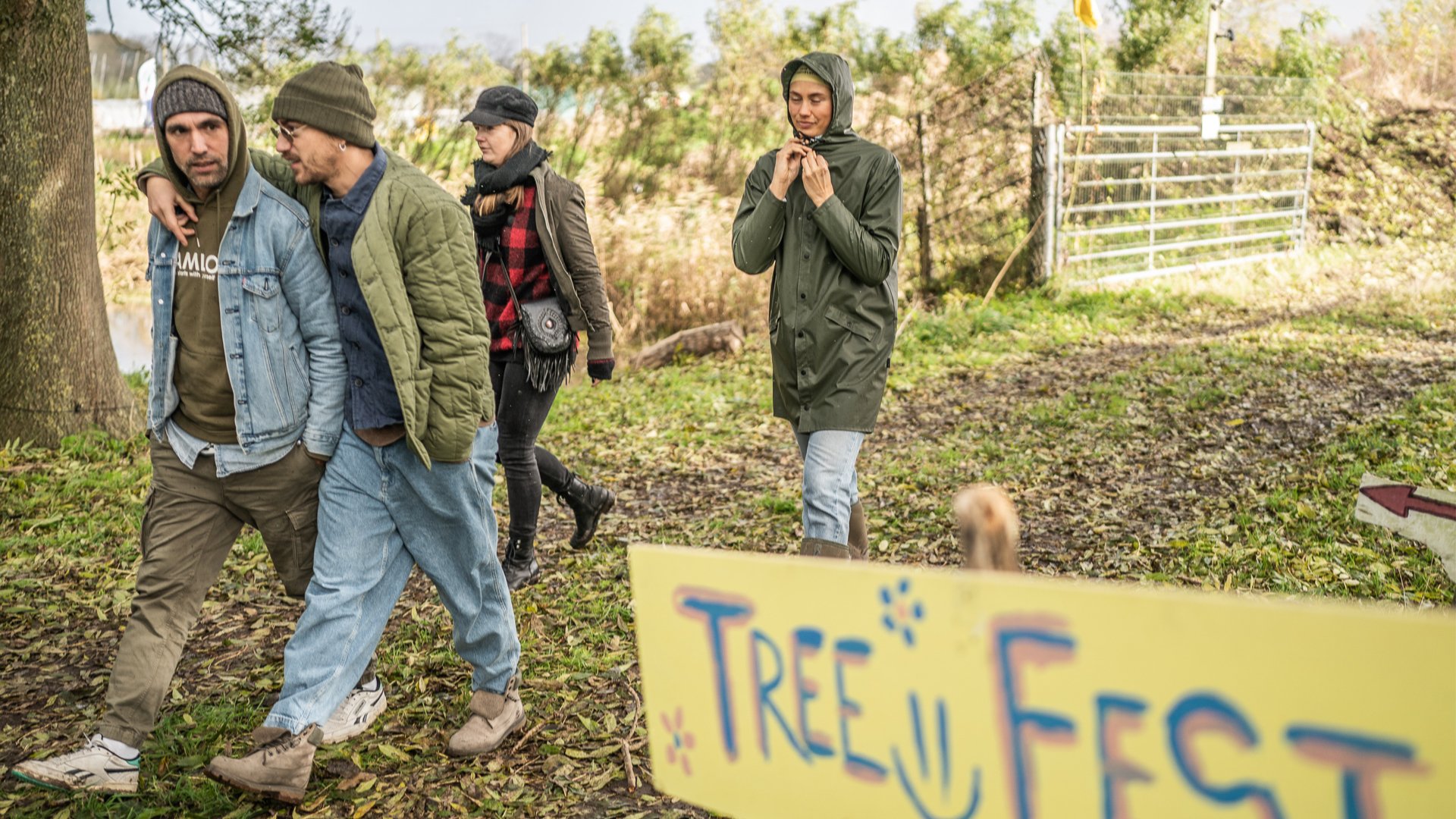
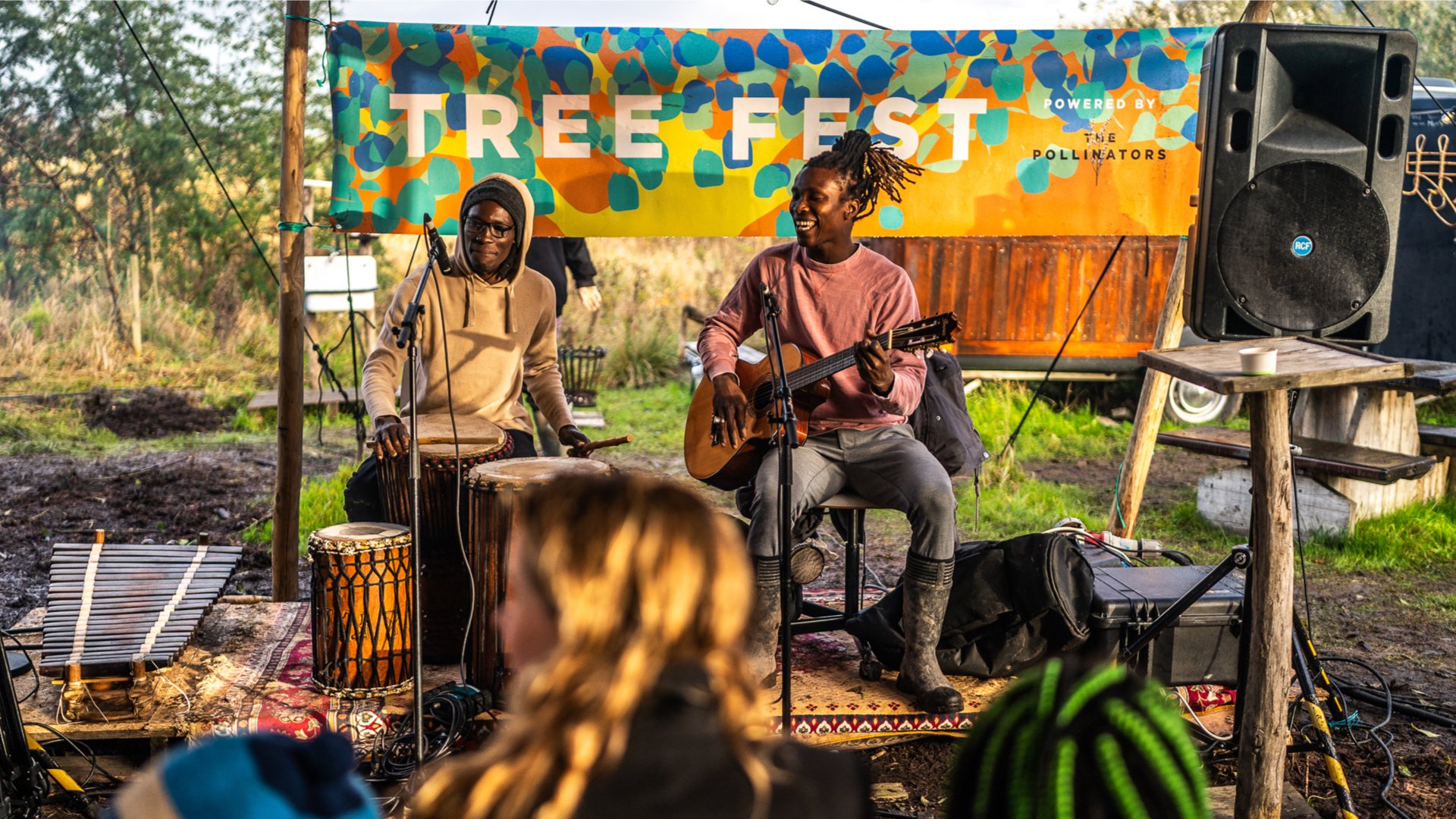
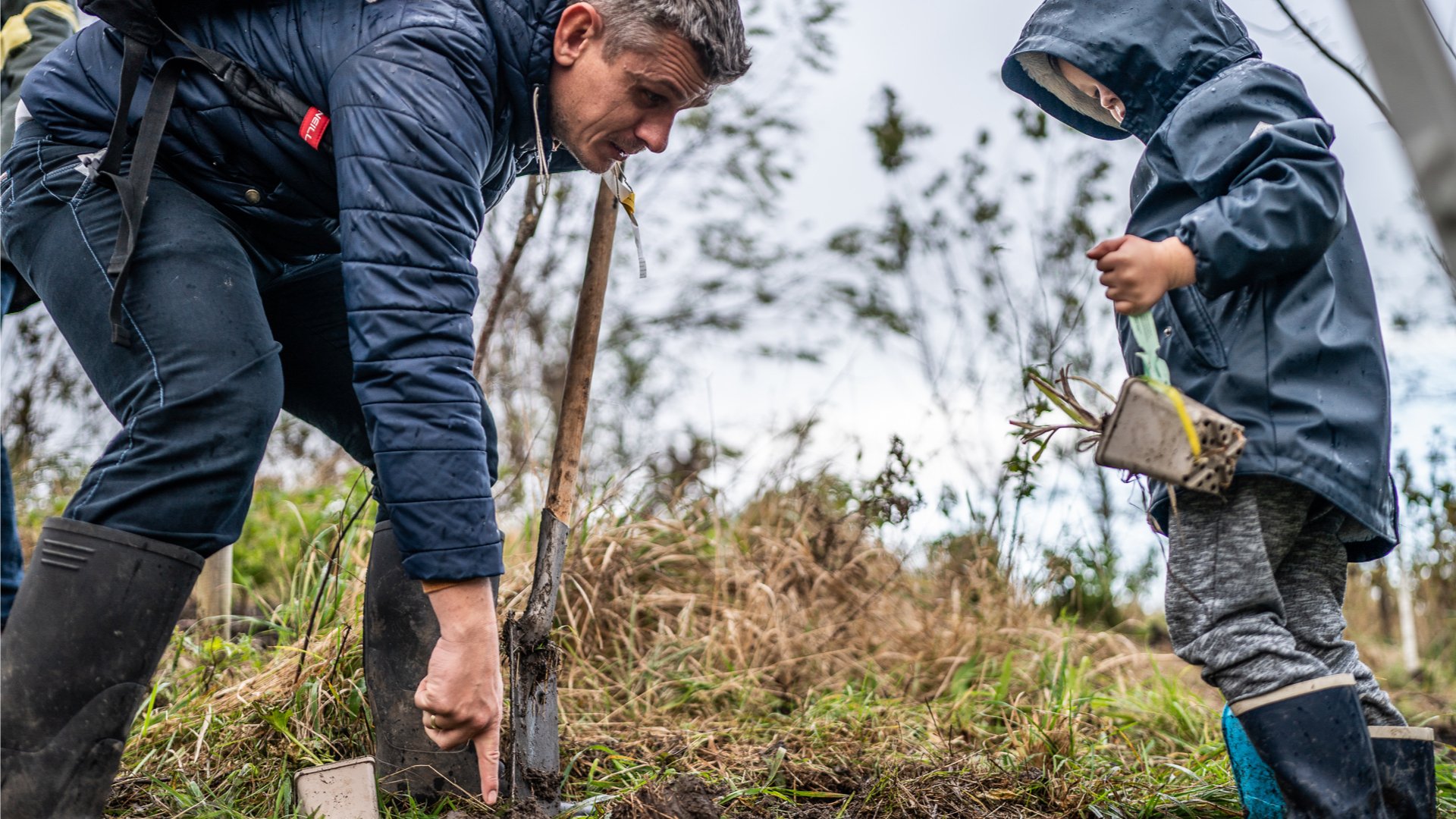
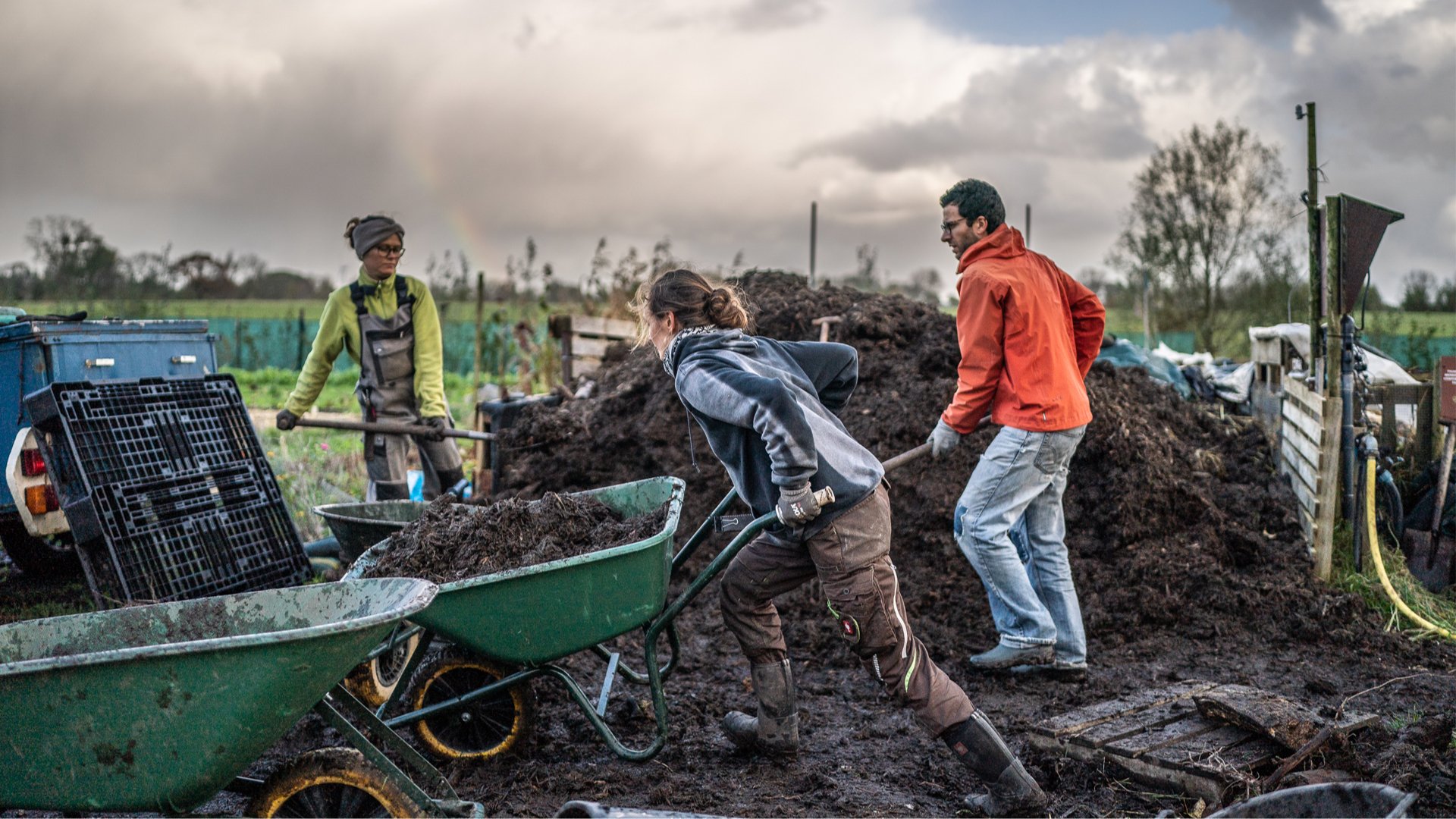
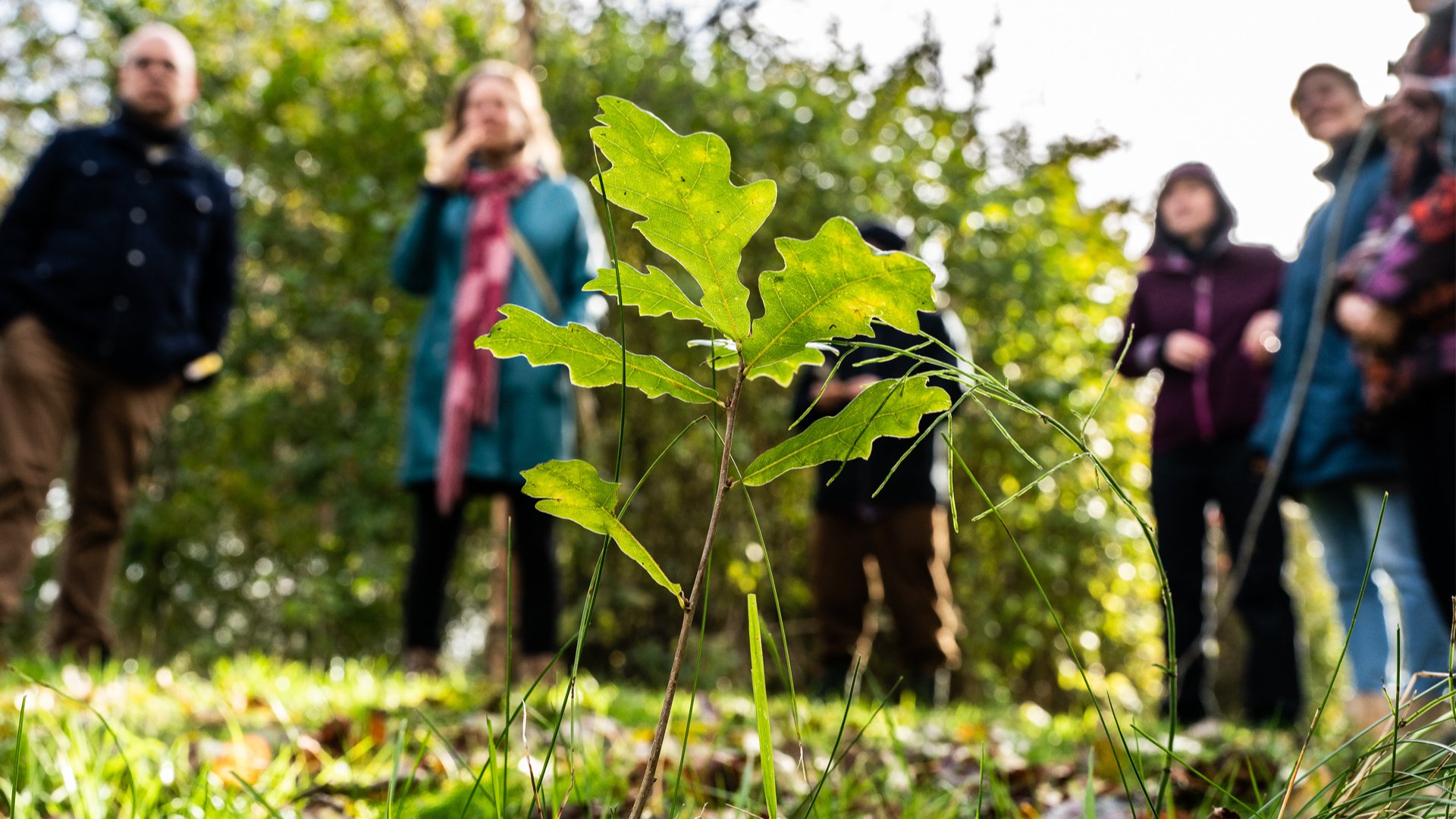
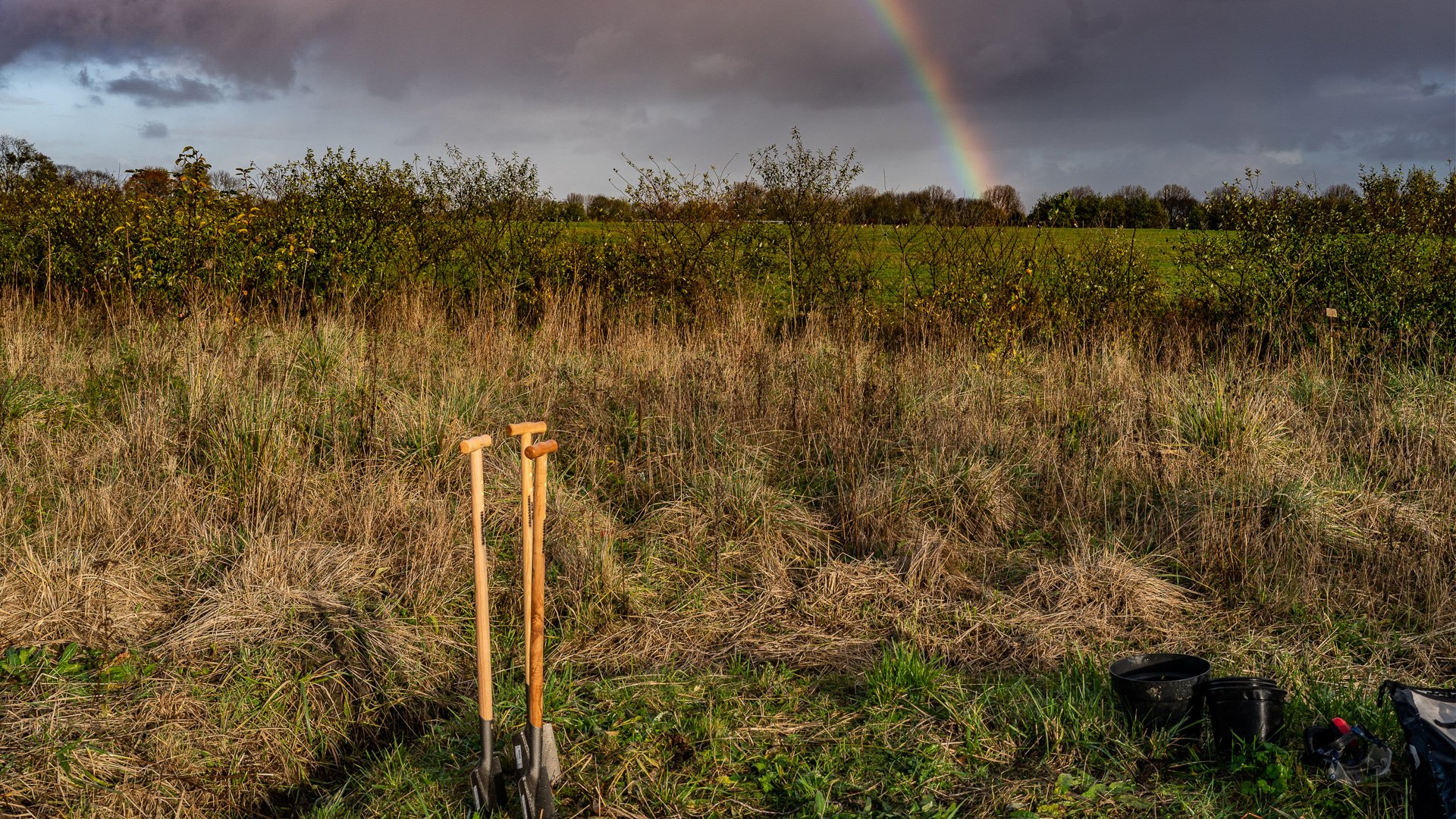
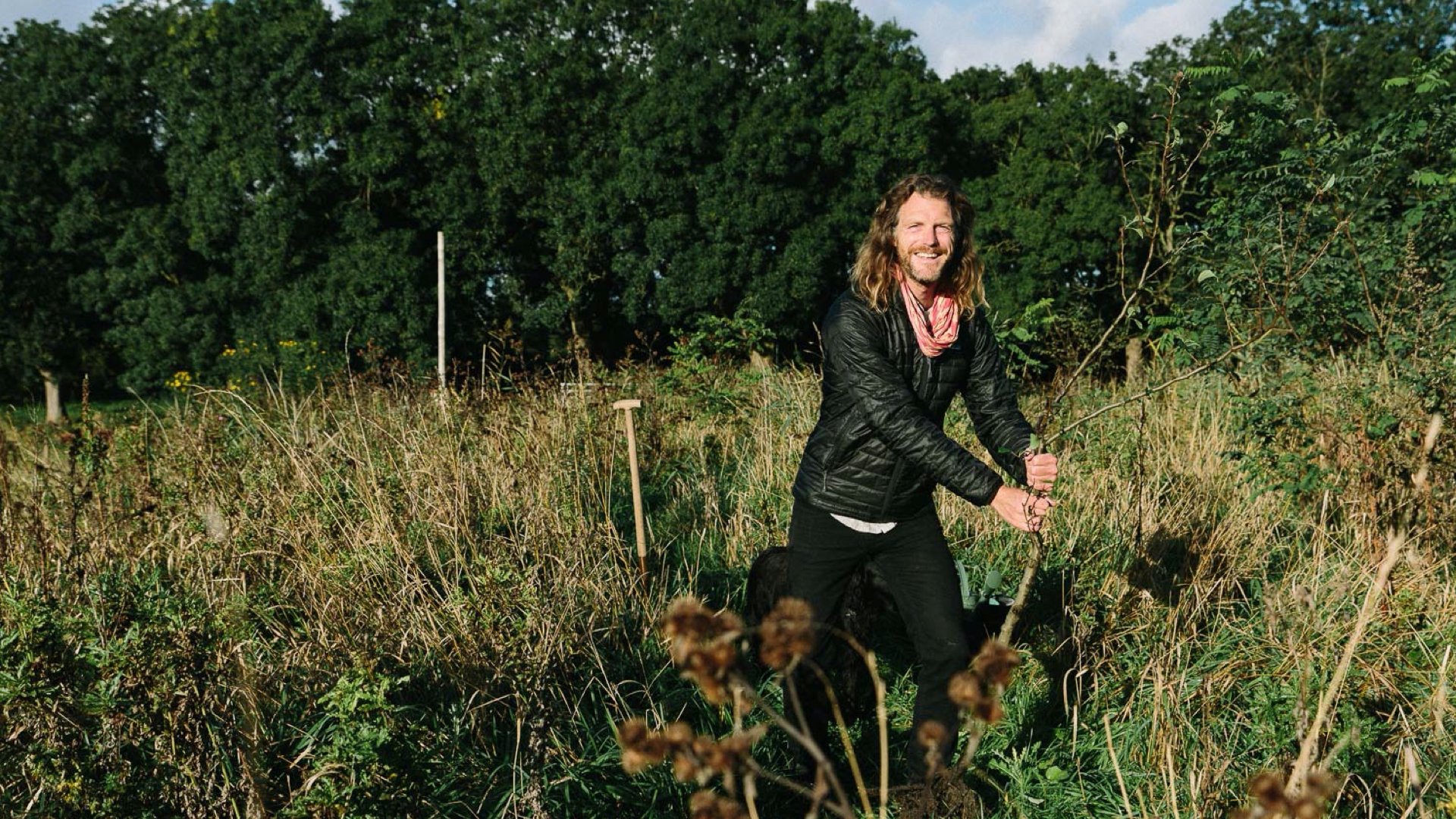
Emphasise beauty
To stay positive in face of all these developments can be a real challenge. Tom’s method is to ‘’emphasise all the beautiful and good things that are already happening and act as an amplifier for them. It also helps to make things fun and attractive to people who aren't involved with the topic yet.’’ That’s why the Pollinators don’t have a ‘’normal’’ tree planting campaign, but combine it with a festival. ‘’With live music, art, workshops, food trucks, campfires: the whole shebang. This is how our Tree Fest was born. In one day we create a food forest together - which is an ideal habitat for pollinators - and we throw a nice party.’’ Besides learning about soil life, the importance of biodiversity, and how food forests help to change agriculture, the actual planting of a tree yourself is an important element. ‘’That does something to people. By planting a tree, you create a bond with the place. Such a connection to a physical place is also something that today's hypermobile people experience less and less.’’
Personally, Tom relates to a quote by Antonio Gramsci: Pessimism of the intellect, optimism of the will. ‘’You know how bad and hopeless the global situation is. Yet, despite that knowledge, there is no option but to venture into the future with optimism. The will can overcome many challenges if hope remains alive.’’
Want to know more? Visit thepollinators.org | Photos by The Pollinators





